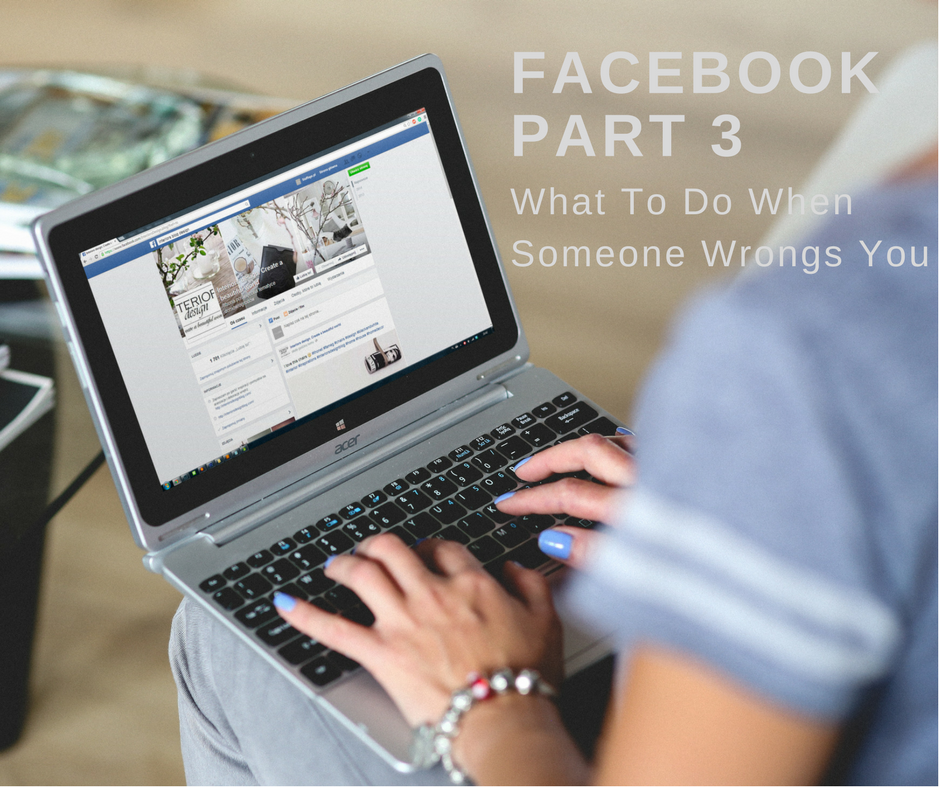One night, I sat with my laptop computer on my lap. My fingers were poised to write and respond to a Facebook post which I knew was geared at me. I even typed out a response several times in the comment line only to hit backspace to delete it all again. I sat looking at that post with my heart beating faster than normal for almost an hour. What should I say? How should I say it? Should I private message the person? What was the biblically right thing to do? I ended up not doing anything, and I am glad that I did. My name had never been used, but I knew it was directed at me. Biblically, I had not done anything wrong and so I decided to stand on the knowledge of that truth.
I can’t imagine I am alone. What do you do when it is someone you know? What do you do when it is someone you don’t know? Do you have the right to say something when you have been slammed on Facebook? Should you call someone out from your church when they cuss or post bad theology, for example, on Facebook? Should you do it publicly or privately?
I am not sure I have ALL of the answers, but I think there are three areas which could be helpful when you have been wronged on Facebook.

Can you turn the other cheek and let it go? I know that you can probably sing the song Let It Go by heart, but can you really let it go? Sometimes, I am sad, upset or hurt by a circumstance which has happened, but upon further thought or examination, I realize that the person has not actually sinned against me. My feelings can get hurt even when no one has sinned. Maybe they have wronged me in some way, but will I really withhold forgiveness from someone when Christ did not withhold forgiveness from me.
I tell my kids all the time, “Take the higher road”. Sometimes, this is just what we need to do. You can turn the other cheek as in Matthew 5:39. You can be cheated or be defrauded as in 1 Corinthians 6:7. You can forgive as Christ has forgiven you as in Ephesians 4:32. You can do it. It is not always easy, but you can!
I will leave you with this story which I love. It comes from 2 Samuel 16:5-14. David’s son, Absalom, wanted to overthrow his father from the the throne. A supporter of Absalom, named Shimei, cursed “continually” at King David and his men as they passed by him. You should read the dialogue yourself, but I love what David says in the end. King David says in 2 Samuel 16:12 (ESV), “It may be that the Lord will look on the wrong done to me, and that the Lord will repay me with good for his cursing today.” How refreshing those verses are for me today and every day. Maybe today I will receive a cursing, but tomorrow I may receive a blessing for it. Turn the other cheek, my friends. Take the higher road and let it go.
